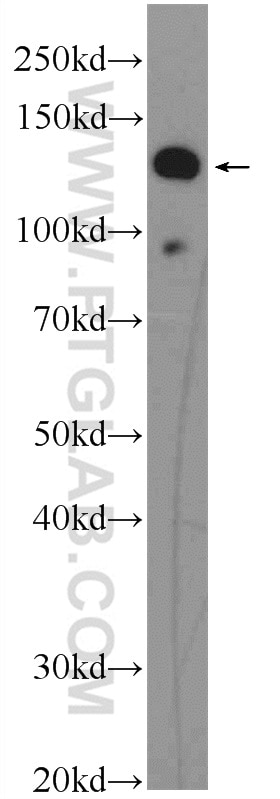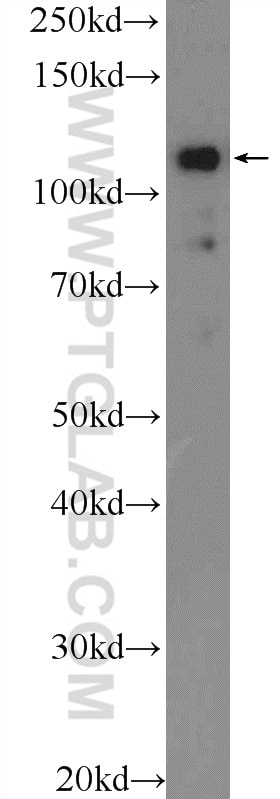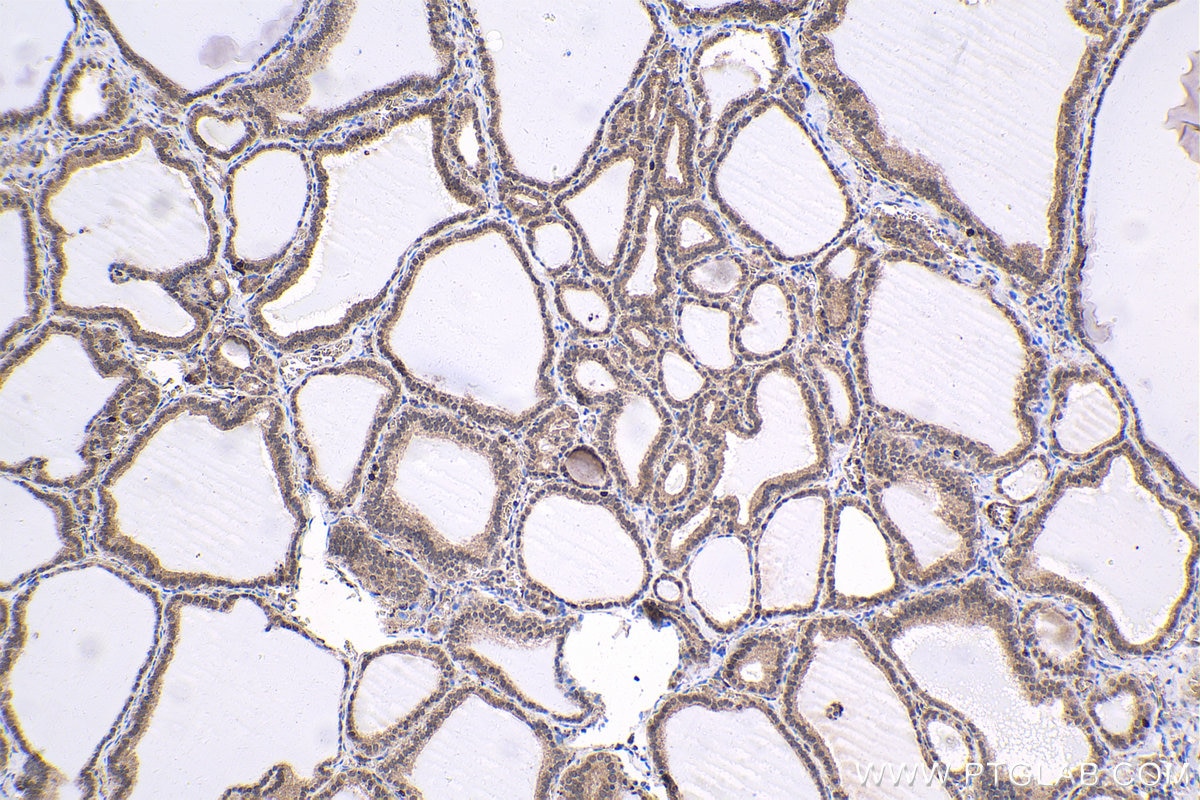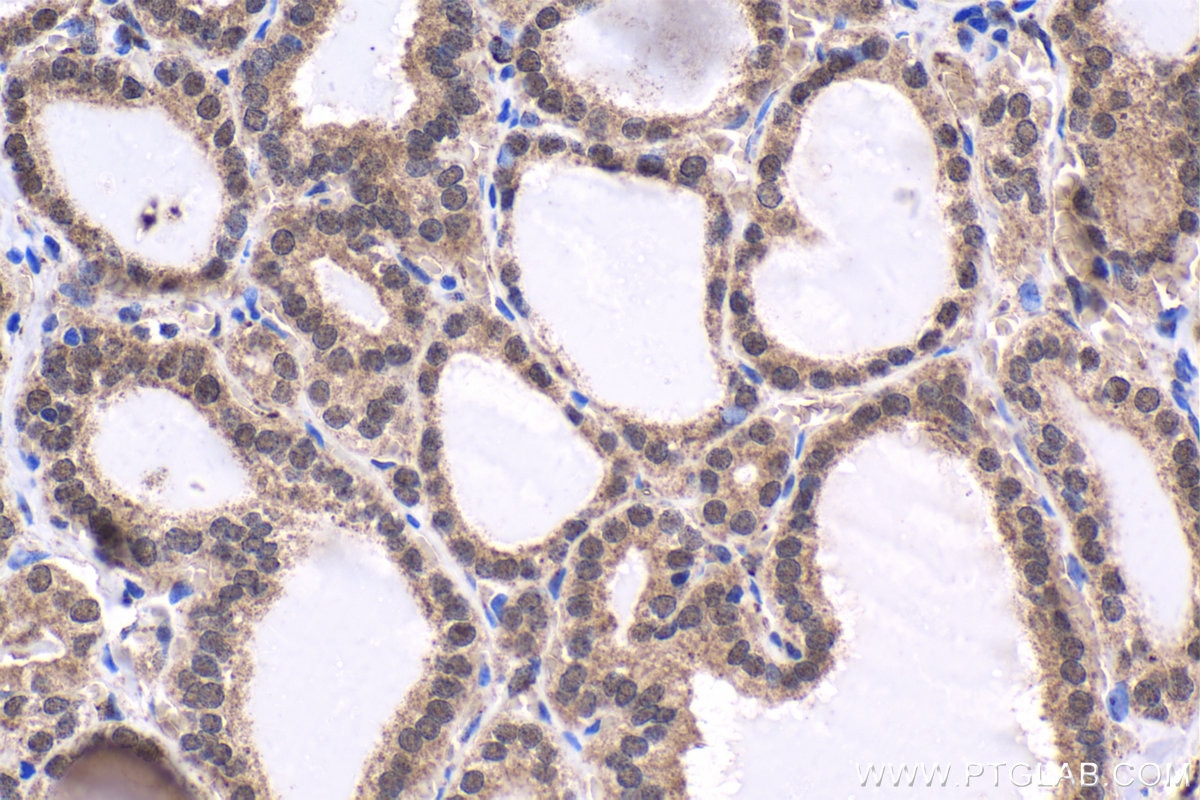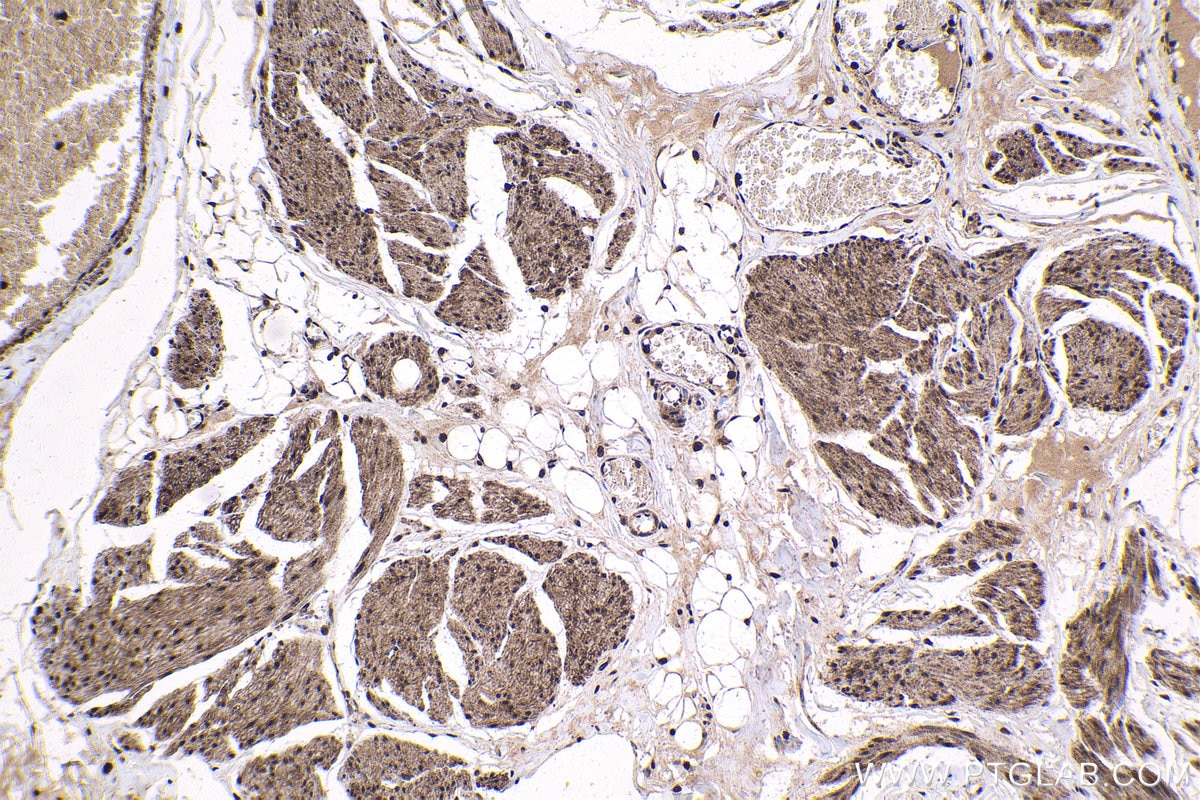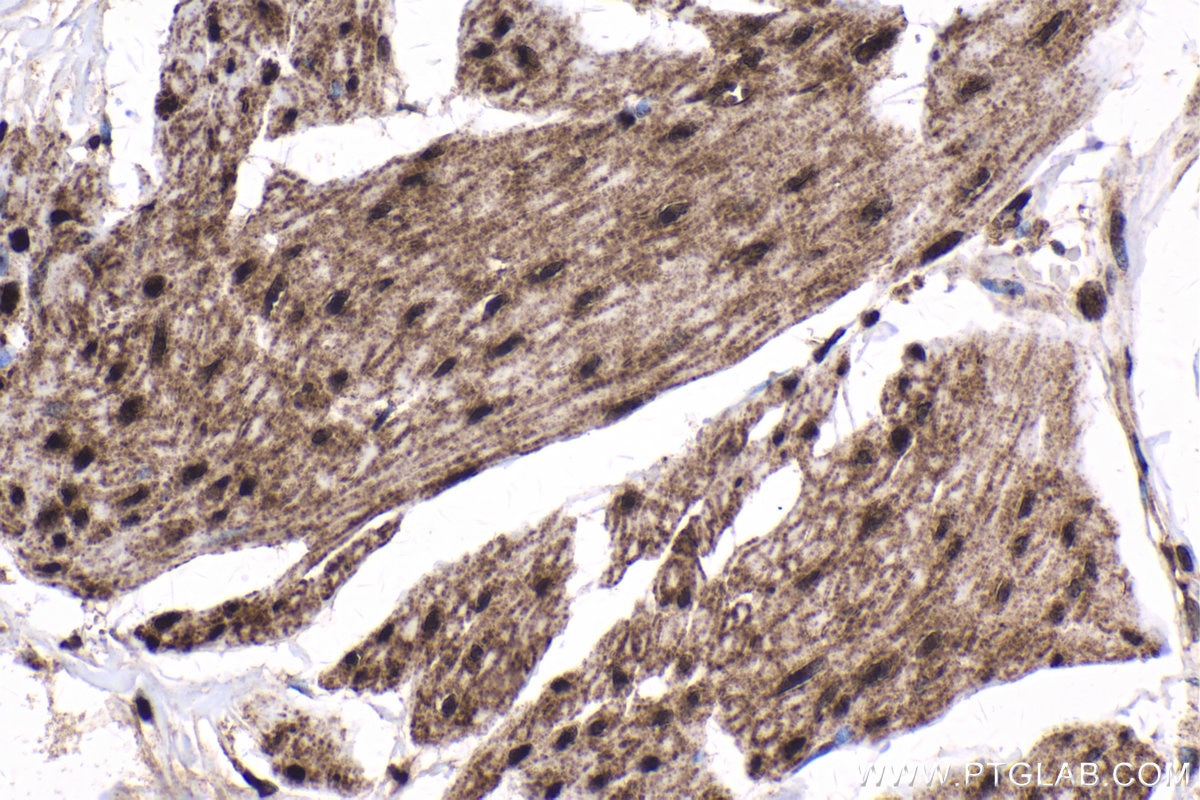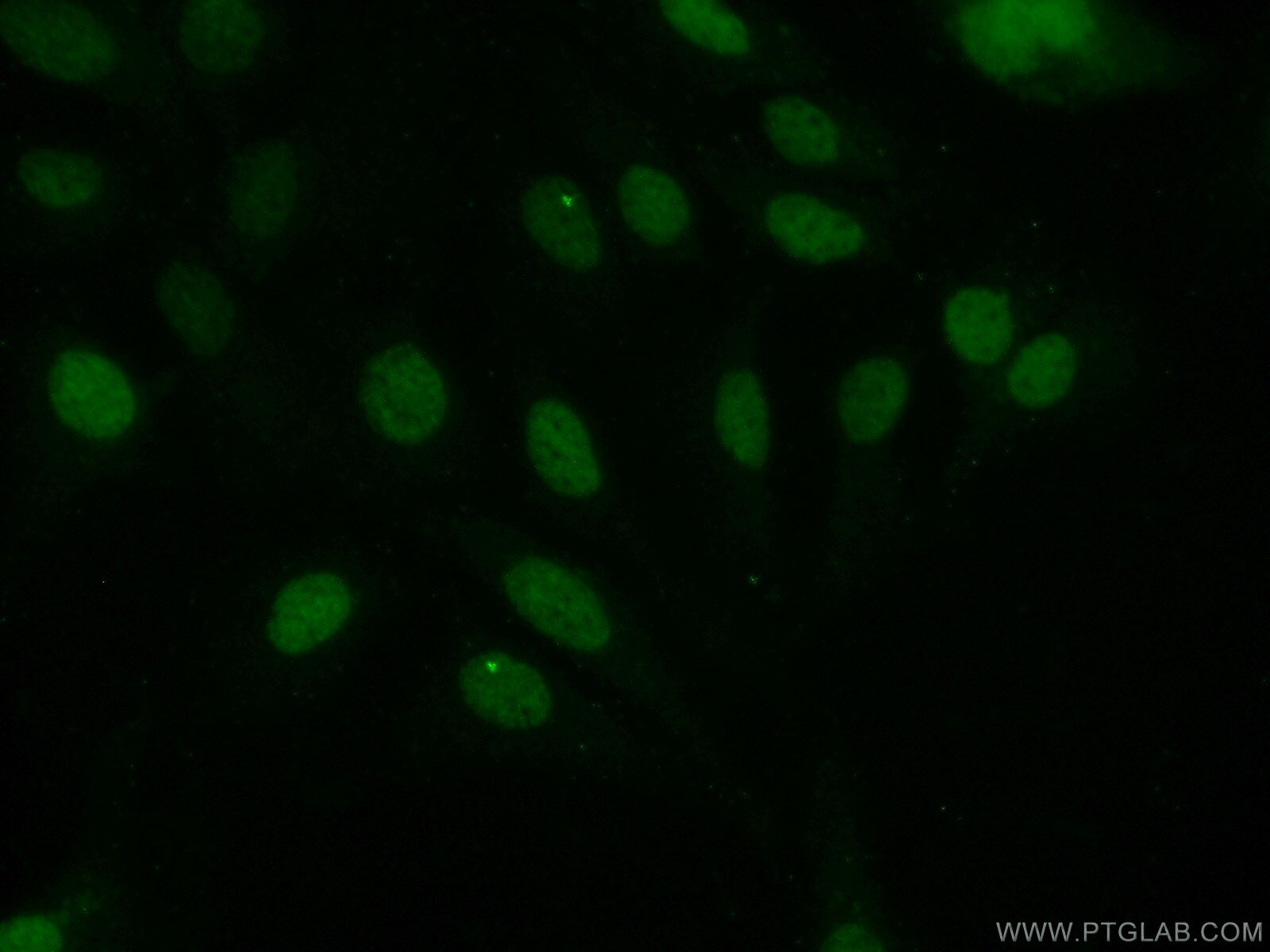EVI1 Polyclonal antibody
EVI1 Polyclonal Antibody for IF, IHC, WB, ELISA
Host / Isotype
Rabbit / IgG
Reactivity
human
Applications
WB, IHC, IF, CoIP, ELISA
Conjugate
Unconjugated
Cat no : 23201-1-AP
Synonyms
Validation Data Gallery
Tested Applications
| Positive WB detected in | SKOV-3 cells |
| Positive IHC detected in | human urothelial carcinoma tissue, human thyroid cancer tissue Note: suggested antigen retrieval with TE buffer pH 9.0; (*) Alternatively, antigen retrieval may be performed with citrate buffer pH 6.0 |
| Positive IF detected in | SKOV-3 cells |
Recommended dilution
| Application | Dilution |
|---|---|
| Western Blot (WB) | WB : 1:200-1:1000 |
| Immunohistochemistry (IHC) | IHC : 1:250-1:1000 |
| Immunofluorescence (IF) | IF : 1:50-1:500 |
| It is recommended that this reagent should be titrated in each testing system to obtain optimal results. | |
| Sample-dependent, Check data in validation data gallery. | |
Published Applications
| WB | See 1 publications below |
| IF | See 1 publications below |
| CoIP | See 1 publications below |
Product Information
23201-1-AP targets EVI1 in WB, IHC, IF, CoIP, ELISA applications and shows reactivity with human samples.
| Tested Reactivity | human |
| Cited Reactivity | human |
| Host / Isotype | Rabbit / IgG |
| Class | Polyclonal |
| Type | Antibody |
| Immunogen | EVI1 fusion protein Ag19603 |
| Full Name | ecotropic viral integration site 1 |
| Calculated Molecular Weight | 1239 aa, 139 kDa |
| Observed Molecular Weight | 118 kDa |
| GenBank Accession Number | BC130520 |
| Gene Symbol | EVI1 |
| Gene ID (NCBI) | 2122 |
| RRID | AB_2879230 |
| Conjugate | Unconjugated |
| Form | Liquid |
| Purification Method | Antigen Affinity purified |
| Storage Buffer | PBS with 0.02% sodium azide and 50% glycerol pH 7.3. |
| Storage Conditions | Store at -20°C. Stable for one year after shipment. Aliquoting is unnecessary for -20oC storage. 20ul sizes contain 0.1% BSA. |
Protocols
| Product Specific Protocols | |
|---|---|
| WB protocol for EVI1 antibody 23201-1-AP | Download protocol |
| IHC protocol for EVI1 antibody 23201-1-AP | Download protocol |
| IF protocol for EVI1 antibody 23201-1-AP | Download protocol |
| Standard Protocols | |
|---|---|
| Click here to view our Standard Protocols |
Publications
| Species | Application | Title |
|---|---|---|
Oncol Rep Heat shock protein B7 (HSPB7) inhibits lung adenocarcinoma progression by inhibiting glycolysis |
